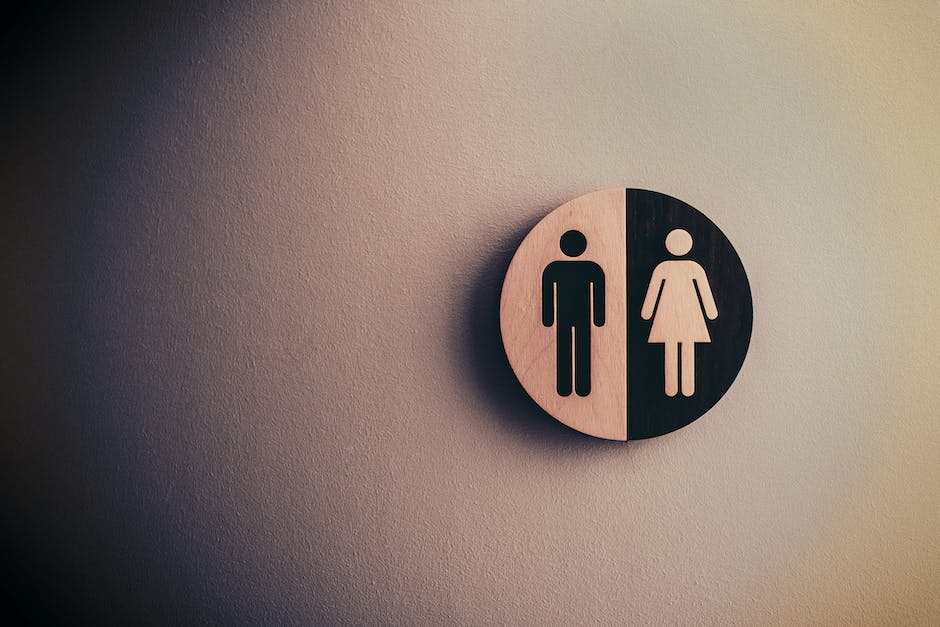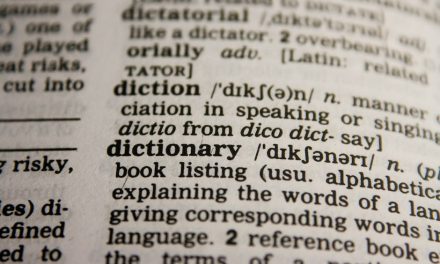Table of Contents
Empowering Minds, Uniting Futures: Promoting Gender Equality through Education in the Arab World.
Introduction
Promoting gender equality through education in the Arab world is a crucial and necessary step towards achieving social progress and sustainable development. By ensuring equal access to education for both girls and boys, the region can empower women, challenge gender stereotypes, and foster inclusive societies. This introduction will explore the importance of promoting gender equality through education in the Arab world and highlight the potential benefits it can bring to individuals, communities, and the region as a whole.
The Importance of Gender Equality in Arab Education Systems

Promoting Gender Equality through Education in the Arab World
The Arab world has made significant progress in recent years in promoting gender equality, particularly in the field of education. Gender equality is a fundamental human right and a necessary condition for sustainable development. It is not only a matter of social justice but also an economic imperative. Education plays a crucial role in achieving gender equality, as it empowers individuals and enables them to participate fully in society.
The importance of gender equality in Arab education systems cannot be overstated. Historically, women in the Arab world have faced numerous barriers to accessing education. These barriers include cultural norms, societal expectations, and discriminatory practices. However, in recent years, there has been a growing recognition of the need to address these barriers and promote gender equality in education.
One of the key reasons why gender equality is important in Arab education systems is that it helps to break the cycle of poverty. Education is a powerful tool for social and economic empowerment. When girls and women have equal access to education, they are more likely to escape poverty and improve their living conditions. This, in turn, has a positive impact on their families and communities.
Furthermore, gender equality in education contributes to the overall development of society. When both boys and girls have equal opportunities to learn and develop their skills, they can contribute more effectively to the social, economic, and political development of their countries. Gender equality in education also promotes social cohesion and reduces inequalities, as it ensures that all individuals have an equal chance to succeed.
In addition, promoting gender equality in Arab education systems is essential for achieving the Sustainable Development Goals (SDGs). The SDGs, adopted by the United Nations in 2015, aim to end poverty, protect the planet, and ensure prosperity for all. Gender equality is a cross-cutting theme that is integrated into all of the SDGs. By promoting gender equality in education, Arab countries can make significant progress towards achieving the SDGs.
To promote gender equality in Arab education systems, several strategies can be implemented. First and foremost, it is important to eliminate gender-based discrimination and stereotypes in educational policies and practices. This can be done by ensuring equal access to education for both boys and girls, promoting gender-sensitive curricula, and training teachers on gender equality issues.
Secondly, it is crucial to invest in girls’ education. This includes providing scholarships and financial support to girls, improving school infrastructure, and addressing the specific needs and challenges faced by girls in accessing education. By investing in girls’ education, Arab countries can empower a new generation of women leaders and change agents.
Furthermore, it is important to engage parents, communities, and religious leaders in promoting gender equality in education. This can be done through awareness-raising campaigns, community dialogues, and the involvement of religious leaders in advocating for gender equality. By involving all stakeholders, Arab countries can create a supportive environment for gender equality in education.
In conclusion, promoting gender equality through education is crucial for the development of the Arab world. Gender equality in education not only empowers individuals but also contributes to poverty reduction, social cohesion, and sustainable development. By implementing strategies to promote gender equality in education, Arab countries can create a more inclusive and equitable society for all.
Strategies for Promoting Gender Equality in Arab Schools
Promoting Gender Equality through Education in the Arab World
Strategies for Promoting Gender Equality in Arab Schools
Gender equality is a fundamental human right that is essential for the development and progress of any society. In the Arab world, where traditional gender roles and stereotypes are deeply ingrained, promoting gender equality has been a challenging task. However, education has proven to be a powerful tool in breaking down barriers and empowering girls and women. In this section, we will explore some strategies that can be implemented in Arab schools to promote gender equality.
One of the most effective strategies for promoting gender equality in Arab schools is to provide equal access to education for both boys and girls. Historically, girls in the Arab world have faced numerous barriers to education, including cultural norms that prioritize boys’ education and limited resources allocated to girls’ schools. By ensuring that both boys and girls have equal opportunities to receive a quality education, schools can help challenge traditional gender roles and empower girls to pursue their dreams.
Another important strategy is to promote gender-sensitive curriculum and teaching materials. Arab schools should strive to create an inclusive and balanced curriculum that reflects the experiences and contributions of both men and women. This can be achieved by incorporating more female authors, scientists, and historical figures into the curriculum, as well as addressing gender issues in subjects such as history, literature, and social studies. By doing so, schools can help challenge gender stereotypes and promote a more equitable understanding of gender roles.
In addition to curriculum changes, it is crucial to train teachers on gender-sensitive teaching methods. Teachers play a pivotal role in shaping students’ attitudes and beliefs, and it is essential that they are equipped with the knowledge and skills to promote gender equality in the classroom. Training programs can include workshops on gender awareness, teaching strategies that challenge gender stereotypes, and creating a safe and inclusive learning environment for all students. By empowering teachers, schools can ensure that gender equality is integrated into everyday classroom practices.
Furthermore, schools should actively promote girls’ participation in extracurricular activities and leadership roles. Traditionally, girls in the Arab world have been discouraged from participating in activities outside of the home, limiting their opportunities for personal growth and development. By encouraging girls to join sports teams, clubs, and student organizations, schools can help build their confidence, develop their leadership skills, and challenge societal norms that restrict their participation. This can have a profound impact on girls’ self-esteem and aspirations, paving the way for a more gender-equal society.
Lastly, schools should engage parents and the wider community in promoting gender equality. Parents play a crucial role in shaping children’s attitudes and beliefs, and it is essential to involve them in discussions and initiatives related to gender equality. Schools can organize workshops and seminars for parents, where they can learn about the importance of gender equality and how they can support their children’s education and aspirations. Additionally, schools can collaborate with community organizations and local leaders to raise awareness about gender equality and advocate for policy changes that promote gender equality in the wider society.
In conclusion, promoting gender equality in Arab schools requires a multifaceted approach that encompasses equal access to education, gender-sensitive curriculum, teacher training, girls’ participation in extracurricular activities, and community engagement. By implementing these strategies, schools can play a pivotal role in challenging traditional gender roles and empowering girls and women to achieve their full potential. Ultimately, promoting gender equality in Arab schools is not only a matter of human rights but also a catalyst for social and economic development in the region.
Empowering Girls through Education in the Arab World
Promoting Gender Equality through Education in the Arab World
Education is a fundamental human right that should be accessible to all, regardless of gender. Unfortunately, in many parts of the world, including the Arab region, girls face significant barriers to accessing quality education. However, there is a growing recognition of the importance of empowering girls through education in the Arab world, as it not only benefits individuals but also has a positive impact on society as a whole.
One of the main challenges faced by girls in the Arab world is the prevalence of gender stereotypes and traditional gender roles. These stereotypes often limit girls’ opportunities and discourage them from pursuing education. In many communities, girls are expected to prioritize household chores and marriage over their education. This perpetuates a cycle of inequality and limits girls’ potential.
To address this issue, various initiatives have been implemented to promote gender equality in education. These initiatives aim to challenge traditional gender norms and empower girls to pursue their educational aspirations. For example, some organizations have established girls-only schools, providing a safe and supportive environment where girls can thrive academically. These schools also offer programs that promote gender equality and challenge harmful stereotypes.
Another important aspect of empowering girls through education in the Arab world is ensuring their access to quality education. Many girls in the region face barriers such as poverty, lack of infrastructure, and cultural norms that prioritize boys’ education. To overcome these challenges, governments and NGOs have implemented programs to provide scholarships, build schools, and improve infrastructure in marginalized areas. These efforts aim to ensure that girls have equal opportunities to receive a quality education.
Furthermore, it is crucial to address the issue of early marriage, which often prevents girls from continuing their education. In many parts of the Arab world, girls are married off at a young age, cutting short their educational journey. To combat this, awareness campaigns have been launched to educate communities about the negative consequences of early marriage and the importance of girls’ education. These campaigns aim to change attitudes and empower girls to make informed decisions about their future.
In addition to addressing barriers to education, it is essential to provide girls with the necessary skills and knowledge to succeed in their academic pursuits. This includes promoting digital literacy, critical thinking, and leadership skills. By equipping girls with these skills, they are better prepared to overcome challenges and contribute to their communities and societies.
Empowering girls through education in the Arab world not only benefits individuals but also has a positive impact on society as a whole. Studies have shown that educated girls are more likely to marry later, have fewer children, and contribute to the economic development of their communities. Furthermore, educated women are more likely to be involved in decision-making processes, leading to more inclusive and equitable societies.
In conclusion, promoting gender equality through education in the Arab world is crucial for empowering girls and breaking the cycle of inequality. By challenging traditional gender norms, ensuring access to quality education, addressing early marriage, and providing necessary skills, girls can thrive academically and contribute to their communities. It is essential for governments, NGOs, and communities to work together to create an enabling environment where girls can access and benefit from education. Only then can we truly achieve gender equality and create a more just and prosperous society for all.
Overcoming Challenges to Achieve Gender Equality in Arab Education
Promoting Gender Equality through Education in the Arab World
Overcoming Challenges to Achieve Gender Equality in Arab Education
Gender equality is a fundamental human right that is essential for the development and progress of any society. In the Arab world, however, achieving gender equality in education has been a significant challenge. Despite progress in recent years, there are still many obstacles that need to be overcome to ensure equal access to education for both boys and girls.
One of the main challenges to achieving gender equality in Arab education is the persistence of traditional gender roles and stereotypes. In many Arab societies, there is a prevailing belief that women should prioritize their roles as wives and mothers over their education and career aspirations. This mindset often leads to girls being discouraged from pursuing higher education and being steered towards more traditional roles. Breaking down these stereotypes and challenging societal norms is crucial in promoting gender equality in education.
Another challenge is the lack of resources and infrastructure in many Arab countries. Limited access to quality education, especially in rural areas, disproportionately affects girls. In some cases, schools may be located far away from girls’ homes, making it difficult for them to attend regularly. Additionally, the lack of proper facilities, such as separate toilets for girls, can also discourage their participation in education. Addressing these infrastructure gaps and ensuring equal access to education for all is essential in promoting gender equality.
Furthermore, early marriage and child labor are significant barriers to girls’ education in the Arab world. Many girls are forced into marriage at a young age, which often leads to them dropping out of school. Child labor is also prevalent, with many girls being engaged in domestic work or other forms of labor instead of attending school. These practices not only deprive girls of their right to education but also perpetuate gender inequality. Efforts to combat early marriage and child labor are crucial in ensuring that girls have the opportunity to receive an education.
Another challenge to achieving gender equality in Arab education is the lack of female representation in decision-making positions. Women are underrepresented in educational leadership roles, which hinders their ability to advocate for policies and initiatives that promote gender equality. Increasing the representation of women in decision-making positions, such as school boards and educational institutions, is essential in driving change and ensuring that the needs and rights of girls are adequately addressed.
In conclusion, promoting gender equality in education in the Arab world requires overcoming various challenges. Breaking down traditional gender roles and stereotypes, addressing infrastructure gaps, combating early marriage and child labor, and increasing female representation in decision-making positions are all crucial steps in achieving gender equality. It is essential for governments, civil society organizations, and international partners to work together to overcome these challenges and create an inclusive and equitable education system that benefits both boys and girls. By investing in girls’ education, we can empower them to become agents of change and contribute to the development and progress of their societies.
Q&A
1. How can education promote gender equality in the Arab World?
Education can promote gender equality in the Arab World by providing equal access to education for both boys and girls, challenging gender stereotypes, and promoting inclusive and gender-sensitive curricula.
2. What are some barriers to promoting gender equality through education in the Arab World?
Some barriers to promoting gender equality through education in the Arab World include cultural norms and traditional gender roles, lack of resources and infrastructure, limited access to quality education for girls, and gender-based discrimination.
3. What strategies can be implemented to promote gender equality through education in the Arab World?
Strategies to promote gender equality through education in the Arab World include implementing policies that ensure equal access to education, providing training and support for teachers on gender-sensitive teaching methods, promoting girls’ education and empowerment programs, and engaging communities and religious leaders in advocating for gender equality.
4. What are the potential benefits of promoting gender equality through education in the Arab World?
Promoting gender equality through education in the Arab World can lead to numerous benefits, including increased economic opportunities for women, improved health outcomes, reduced gender-based violence, enhanced social cohesion, and overall societal development and progress.
Conclusion
In conclusion, promoting gender equality through education in the Arab world is crucial for achieving sustainable development and social progress. By providing equal access to quality education for both girls and boys, barriers to gender equality can be dismantled, empowering women and girls to fully participate in all aspects of society. This will not only benefit individuals but also contribute to the overall development and prosperity of the Arab world. Efforts should be made to address cultural and societal norms that perpetuate gender inequality, and policies should be implemented to ensure equal opportunities and rights for all. Education has the power to transform societies and promote gender equality, making it a vital tool in creating a more inclusive and equitable Arab world.




